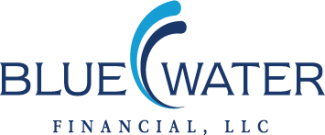
Charitable Giving: Doing Your Due Diligence
Donating to charities is a win-win when filing taxes. You get to help a cause you care about and can claim dedications on cash contributions. But what happens when the charity you’ve given to is fraudulent? You’ve now donated to a false entity, haven’t helped the cause, and cannot write it off on your taxes.
With how easy it is to share information online, authentic non-profits can stretch their influence father than before. But it also means that fraudulent schemes can pop up and go viral just as easily. Situations like this can occur at any time, but they often pop up during tragedies.
In other cases, organizations have mishandled generous donations or don’t allocate funding properly.
Consider these tips to help confirm if the charity you want to donate to is making an impact.
Check the Legitimacy
Before donating, check the charity’s name against a credible database. The IRS Tax Exempt Organization Search Tool can help you confirm that you can write off your donation. If you’re donating to an American organization, check their 501(c)(3) status. There are other types of organizations that accept contributions and allow you to take a deduction, but they vary, and sometimes the deduction allowed is as a business deduction, not a charitable contribution. Either way, the ability to accept deductible donations is a key qualifier of a legit charity.
When researching charities online, check the URL. Many charity URLs end in .org instead of .com or .net. Also, double-check the spelling and look for missing or extra letters.
You’ve Got Mail
If you receive an email claiming to be an organization that’s seeking donations, report it as spam and delete it. If the email asks you to download any sort of file, do not download or open any attachments. There’s a chance that those files could be carrying a virus that aims to steal your personal information.
The only exception is if you receive an email from an actual organization that you have donated to previously.
Always Get a Receipt
Having confirmation of your donation is essential, especially if you donate over $250. This is the IRS cutoff for proof of donation. While you can provide a canceled check as proof, it may be more difficult to provide that proof when giving online. The organization should always provide a receipt for any donation of $250 or more.
Transparency Matters
Even if a charity seems legitimate, it may not be effectively helping the cause(s) it represents. You have the right to ask to see annual reports and documentation to see how a charity allocates its funds. The Charities Review Council recommends that at least 65% of a charitable organization’s total expenses go toward its programs.
However, remember that many organizations wouldn’t exist without staff that provides expertise, runs programs, and maintains finances. Overhead is necessary, but just make sure that it’s not the only thing donations are being used for.
Report Abuse
If you believe a charity you’ve seen or have donated to is a scam, report it to the Federal Trade Commission at 1-877-382-4357, or use their Online Complaint Assistant. You can also report questionable emails and websites to the FBI’s Internet Crime Complaint Center.
By spending a few minutes researching, you can help ensure your money is going to a worthy cause that will use it wisely.
This content is developed from sources believed to be providing accurate information. The information provided is not written or intended as tax or legal advice and may not be relied on for purposes of avoiding any Federal tax penalties. Individuals are encouraged to seek advice from their own tax or legal counsel. Individuals involved in the estate planning process should work with an estate planning team, including their own personal legal or tax counsel. Neither the information presented nor any opinion expressed constitutes a representation by us of a specific investment or the purchase or sale of any securities. Asset allocation and diversification do not ensure a profit or protect against loss in declining markets. This material was developed and produced by Advisor Websites to provide information on a topic that may be of interest. Copyright 2022 Advisor Websites.

